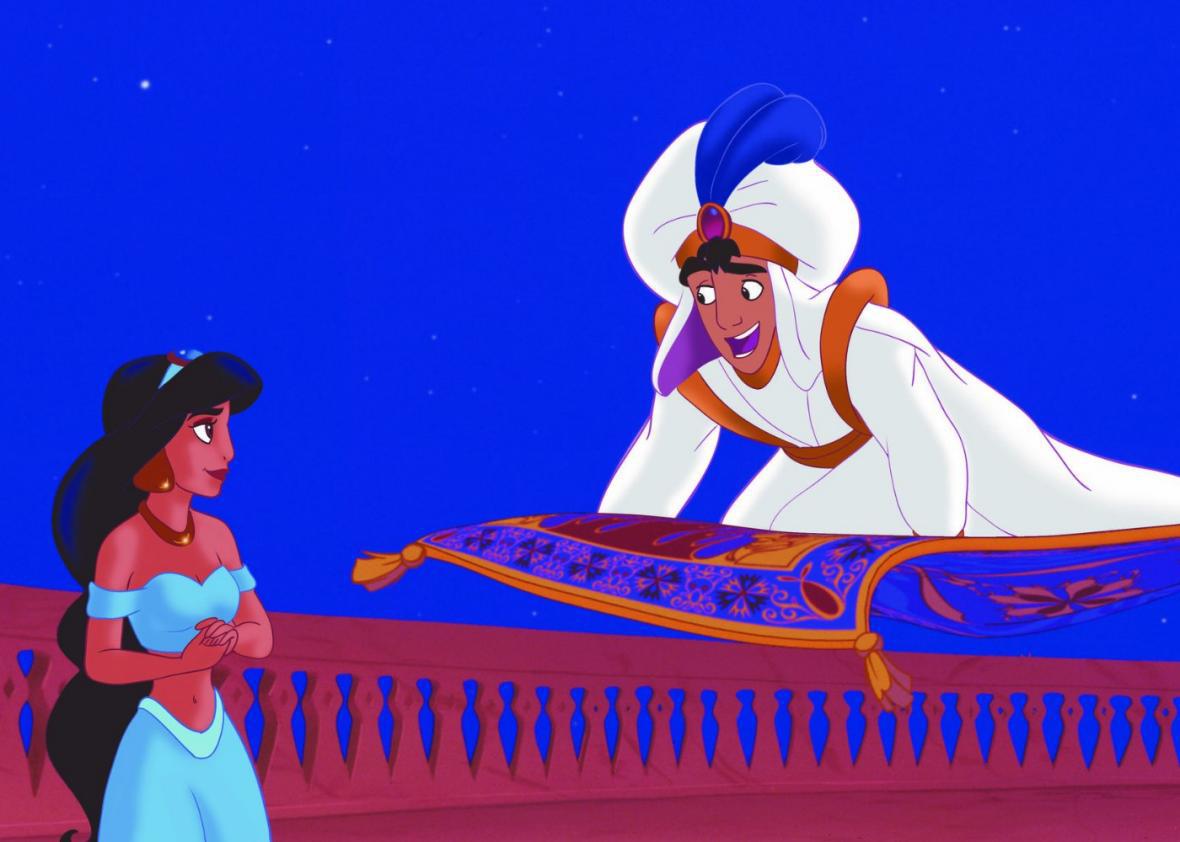According to the Hollywood Reporter, Disney and director Guy Ritchie have hit a wall with casting the lead roles for their upcoming live-action remake of Aladdin.
Over 2,000 actors and actresses have read for the roles of Jasmine and Aladdin—yes, they tested Riz Ahmed and Dev Patel—but so far the search has gone nowhere. Casting an Aladdin seems to be the main area of difficulty, as Disney is reportedly having trouble finding a male of Indian or Middle Eastern descent who can both act and sing. One agent whose client read for the part called the casting process “a mess.” For Jasmine, the studio is leaning towards new Tara Sutaria or new Pink Ranger Naomi Scott, both of whom are of Indian descent. Because of these casting woes, shooting, which was set to begin this month, has been pushed back to August. The only person who has definitely been locked down is Will Smith, who will play Genie. (I maintain the stern belief that Jack Black would have been perfect for that role.)
Casting this Aladdin is a tricky situation for Disney and Ritchie. Even in 1993, audiences took issue with Aladdin’s portrayal of Arab culture. In his review of the film, Roger Ebert wrote that the film’s use of ethnic stereotypes was a “distraction,” as “[m]ost of the Arab characters [had] exaggerated facial characteristics—hooked noses, glowering brows, thick lips—but Aladdin and the princess look like white American teenagers.” Prior to Aladdin’s home video release, Walt Disney Studios even agreed to change the lyrics to the opening number “Arabian Nights,” after the American-Arab Anti-Discrimination Committee rightly raised hell. Former Disney executive Dick Cook defended the song, saying, “The irony in all of this is that this is the first movie in years where both the hero and heroine are Arabic, and both are obviously terrific role models, not just for Arabs but for everybody,” but Disney changed the offensive lyrics for video release, although even the new version refers to the story’s setting as “barbaric.”
On social media, fans responded with long lists of suggestions drawn from Bollywood and established stars with Indian heritage. But a subset of criticism has focused on the fact that Ritchie and the studio were considering casting Indian actors at all, given that all the characters in the movie are Arab.
Ritchie and Disney very well may be having genuine trouble finding a viable actor for Aladdin, a role that is demanding and requires an exhausting amount of charisma, but the fact that they’re even looking at Indian actors at all raises red flags. Yes, the original Aladdin movie was based on a story from Arabian Nights about a young Chinese boy, but Disney is remaking its own version of the story, the Arabness of which it has repeatedly acknowledged.
Middle Eastern and Indian cultures and people are not interchangeable, and Ritchie, Disney, and those criticizing the casting difficulties and making casting suggestions should not treat them as such. This live-action remake is an opportunity for Disney to correct some of the original Aladdin’s racist tendencies, and accurately casting Arab actors in the film’s leading roles would be a good start. By tapping Arab actors to lead the film, Ritchie and co. can reject Hollywood’s reflex to lump all brown characters into one group and instead champion true diversity in Hollywood and really give audiences a new fantastic point of view.
